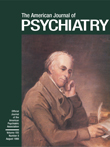Dr. Chessick Replies
TO THE EDITOR: This is in response to Dr. Marmor's letter. There is a distinction between “unfairness” and difference of opinion. My review of Dr. Marmor's edited book was in no way unfair; it simply expressed my opinion, which happens to be different from his. I did not, and do not now, think that it was wise to reprint the book as a “classic,” since parts of it are obsolete, as I indicated in my review. It would have been much better to re-edit and to update the book as a second edition, rather than to let it stand as it was 30 years ago. I do not think I made any error, egregious or otherwise, and I stand by what I said in the review. I think the error was made by Transaction Publishers.
I was flattered that Dr. Marmor took the trouble to read my essay in the Journal of the American Academy of Psychoanalysis. It was not paraded as a “scientific” article but, rather, as an expression of my own view. I was surprised that Dr. Marmor found my thesis “astounding, totally unscientific, and unprovable,” since it has been put forth in various forms throughout history: in philosophy from the time of the followers of Confucius; in religion from the time of the ancient Egyptians; and in psychoanalysis, not only by Freud but by many of his followers, including Hartmann and the ego psychology school. I can certainly understand that Dr. Marmor entirely rejects instinct-oriented theorizing, and I respect both him and his opinion; however, there is hardly anything novel or extraordinary about my opinion.
The issue of what makes an opinion unscientific and unprovable has certainly not been decided today; that is why postmodernism and hermeneutics have become important influences in our clinical work. In fact, every interpretation given to a patient represents an opinion. I do not know what Dr. Marmor means by the phrase “postmodern seductive verbiage.” I think, as he does, that biobehavioral research is very important; however, I would like to see it supplement and correct, rather than completely replace, current psychoanalytic theory, in a friendly dialectic between our clinical experience and findings from research in various fields of the behavioral sciences and neurobiology. Incidentally, I believe that Freud would have agreed with this approach; after all, he began as a neuroscientist.



